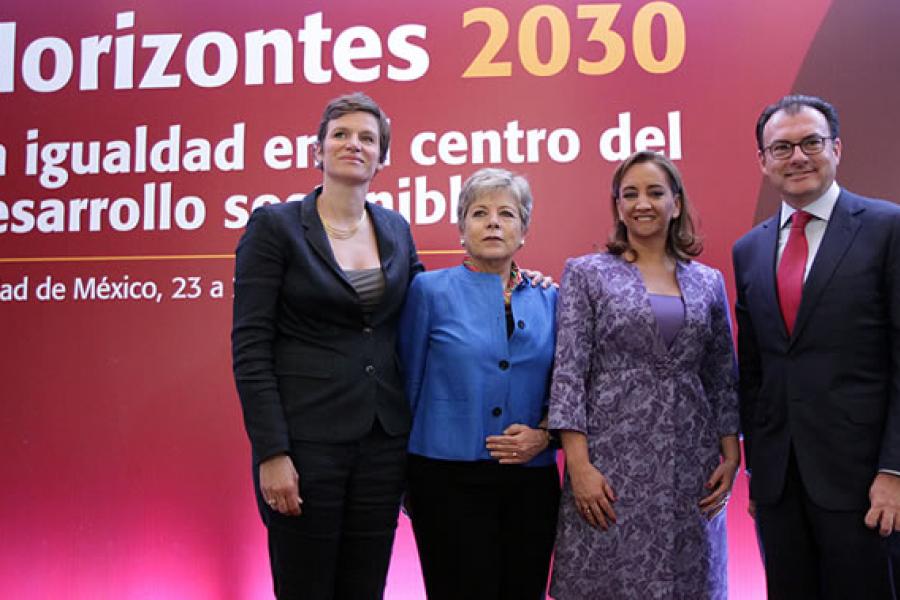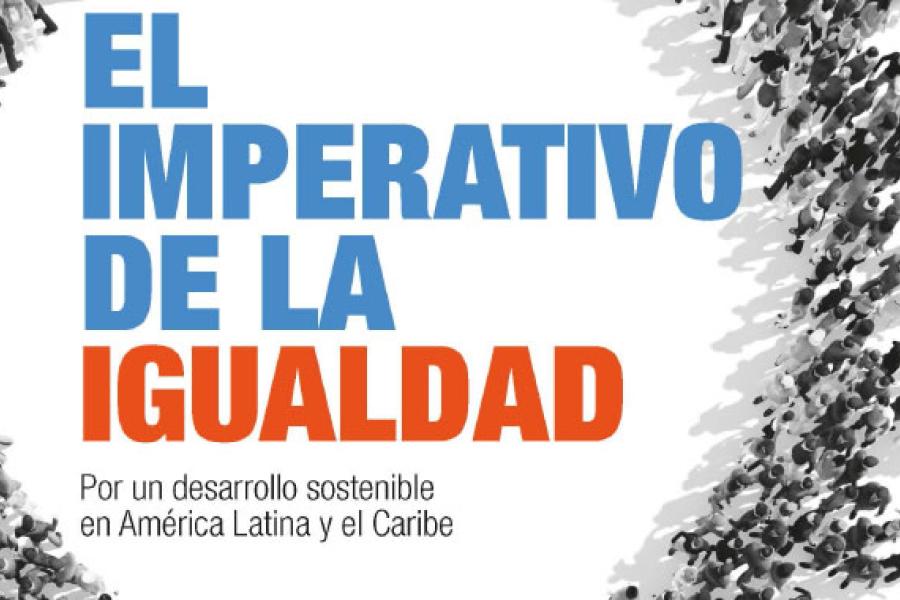Promoting equality in Latin America and the Caribbean
Área(s) de trabajo
Tema(s)
The overall development goal of the Programme is to increase equality in Latin America and the Caribbean (LAC) by identifying and promoting innovative pro-equality public policies, strengthening institutional capacity and fostering policy dialogue and coordination. The specific Programme goal is to promote and increase the understanding, knowledge and consensus among decision makers around public policies oriented towards greater socio-economic and gender equality in LAC. The expected results of the Programme are a) the understanding of how the interrelation between equality and productive structure, universal social protection, natural resources and gender mainstreaming can be improved and deepened, particularly through the research, publication and dissemination of a number of innovative studies and indicators in these fields; and b) the strengthening the capacities of the institutions involved in the Programme through policy dialogue and cooperation on equality.
Resultados
The cooperation programme focused on developing knowledge and strengthening LAC countries’ capacities to implement synergic public policies aiming at upgrading the productive structure; improving equality and universal social protection; fostering gender equality and linking the governance of the natural resources sector to the strengthening of social equality.
The programme substantially contributed to foster the discussion and the positioning in the regional agenda of important issues pertaining to the social, economic and environmental pillars of sustainable development. For example, the solidarity-based social protection systems; women’s economic autonomy and an economic dimension of gender inequality; the analysis of current patterns of resource rent appropriation by States, and their subsequent allocation to public expenditures at various government levels.
An important number of publications, seminars, and policy dialogues with government authorities have been organized in order to foster the exchange of experiences between academics, practitioners and policy makers both from LAC and Norway. The combination of this analytical work and the provision of technical assistance to several countries of the region (Uruguay, Haiti, Dominican Republic, among others) has generated applied knowledge on the closing of structural gaps and its impact to equality, as well as the strengthening of regional capacities to design and implement public policies on these subjects.
Several outputs from the Government of Norway-ECLAC cooperation programme were used for the elaboration of the most recent ECLAC position paper submitted to member states representatives at the 2014 Session of the Commission held in Peru, titled “Compacts for equality: towards a sustainable future”. Importantly, during the session there was general consensus by member states over the integrated approach to development and the focus on equality contained in the document presented by ECLAC.
Noticias:
-
1 Sep 2016 | Artículo
El desarrollo social inclusivo es clave para superar la pobreza y reducir las desigualdades
Columna de opinión de Laís Abramo, Directora de la División de Desarrollo Social de la CEPAL (publicada en Notas de la CEPAL N⁰ 89, septiembre 2016).
-
 17 Jun 2016 | Comunicado de prensa
17 Jun 2016 | Comunicado de prensaAlicia Bárcena: "Modelo de desarrollo actual es insostenible; igualdad y sostenibilidad exigen cambiar la conversación entre Estado, sector privado y ciudadanía"
La Secretaria Ejecutiva de la CEPAL expuso en diversos paneles del Foro Económico Mundial sobre América Latina 2016 celebrado en Medellín, Colombia.
-
 26 Mayo 2016 | Comunicado de prensa
26 Mayo 2016 | Comunicado de prensaUna renovada ecuación entre el Estado, el mercado y la sociedad es necesaria para construir un nuevo estilo de desarrollo en la región
Autoridades y académicos destacaron la propuesta de la CEPAL contenida en el documento “Horizontes 2030: la igualdad en el centro del desarrollo sostenible”, que fue presentado hoy en México por la Secretaria Ejecutiva del organismo, Alicia Bárcena.
-
 20 Mayo 2016 | Noticias
20 Mayo 2016 | Noticias¿De qué hablamos cuando hablamos de igualdad?
A pocos días del inicio de su trigésimo sexto período de sesiones en México, la CEPAL publica el libro El imperativo de la igualdad, escrito por los máximos representantes del organismo regional: Alicia Bárcena y Antonio Prado.
País(es)
- Latin America and the Caribbean
Tipo de financiamiento
Socios estratégicos
Agencia de Cooperación para el Desarrollo, Gobierno de Noruega
- http://www.norad.no/en
- +4723980000